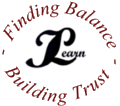|
|
I-Learn Rationale |
One major reason why many learners from holistic or "high-context" cultures (ie: Native Americans, Hawaiians, Latin Americans, Greeks, Mexicans, etc.) struggle in public education systems is that their lifestyle, their environment, their culture, all of their early training prepares them to function in life as integrated aspects of their environment, not as individual competitive entities and manipulators of life’s many situations. Most perceive themselves as connected to everything in their world. They are woven into the wholeness of life. These people function and think through relationships with everything, not as lone, separate entities.
Our dominant social, economic, and educational systems, on the other hand, emphasize the traditional European values of individuality, independence, deductive thinking, inquiry-based learning, and linear reasoning/problem solving. Yet, most holistic students have not acquired these particular skills necessary to learn in the demanding and competitive environments that characterize our classrooms. Sadly, although educators for the most part recognize the discrepancy between how things are taught and how many students learn, they are tied to linearly-based accountability systems that demand that students solve problems and perform in isolated, meaningless activities that have no relationship to their lives or experiences.
As an example, the negative learning experiences of the Native American in public school systems matches those of many other populations who characteristically fail in school or subsequent educational programs. As stated above, people raised in other “high-context” cultures (where the individual is considered to be an integral part of the environment) also struggle in our linear, competitive systems. Many minority cultures, including, presumably, the welfare culture that has developed over the past few generations in this country, reflect the same holistic learning orientation. These populations overwhelmingly fail in our educational system and become the resigned workers in our society who settle for the lowest wages and lowest skilled jobs, if they find work at all.
If holistic learners are to succeed in our school systems, two changes must occur in the classroom and other learning environments. First, teachers must learn to integrate academic skills into meaningful instruction that relates to the student’s experience and life needs. Secondly, once learners gain confidence and begin to succeed, they must eventually learn to acquire information presented through a variety of ways, if they choose to become participating members in the dominant culture. In short, they must learn to analyze and become independent learners and problem solvers. We propose to offer resources to encourage those changes needed for holistic learners and their instructors to succeed.
Another reason why many holistic learners in the United States fail to succeed academically is that they often live in isolated, rural areas. Access to educational resources is limited, and there is little contact with other groups of similar cultures, with whom they could share information and learn together. This is especially true with the Native American populations. In order to reach Native American students and their teachers in schools on and off the reservations, we propose to offer on-line educational classes, resources and professional training through our “integratelearning” website. In addition, the website will offer grant-writing training to help build an on-line and live-interactive educational community. Communication and interaction through Internet forums will bring Native Americans and other interested holistic learners together to dialogue about educational concerns and other relevant issues. Hopefully, this distance educational format will foster gatherings/forums of people from various holistic learning groups who will come together to recognize their common educational needs, as well as their uniqueness in learning.
|
|
